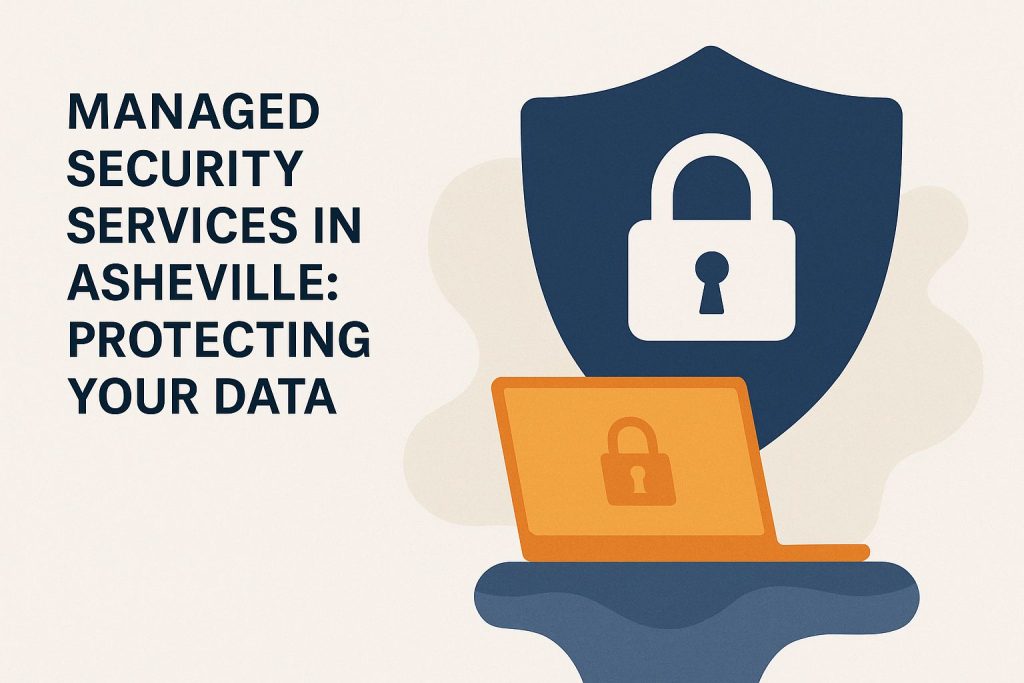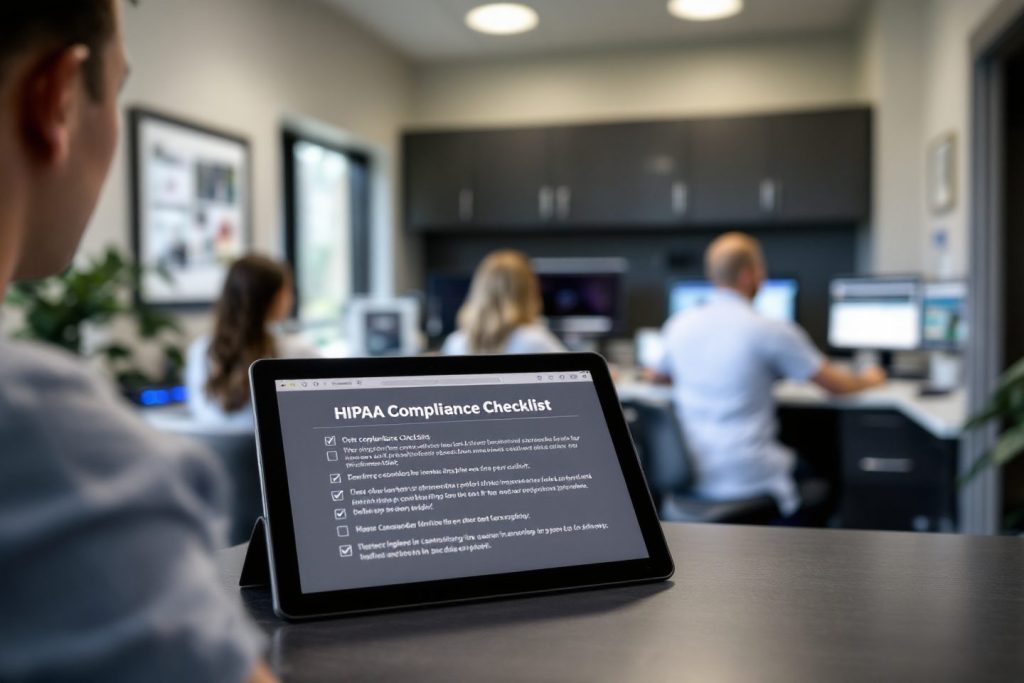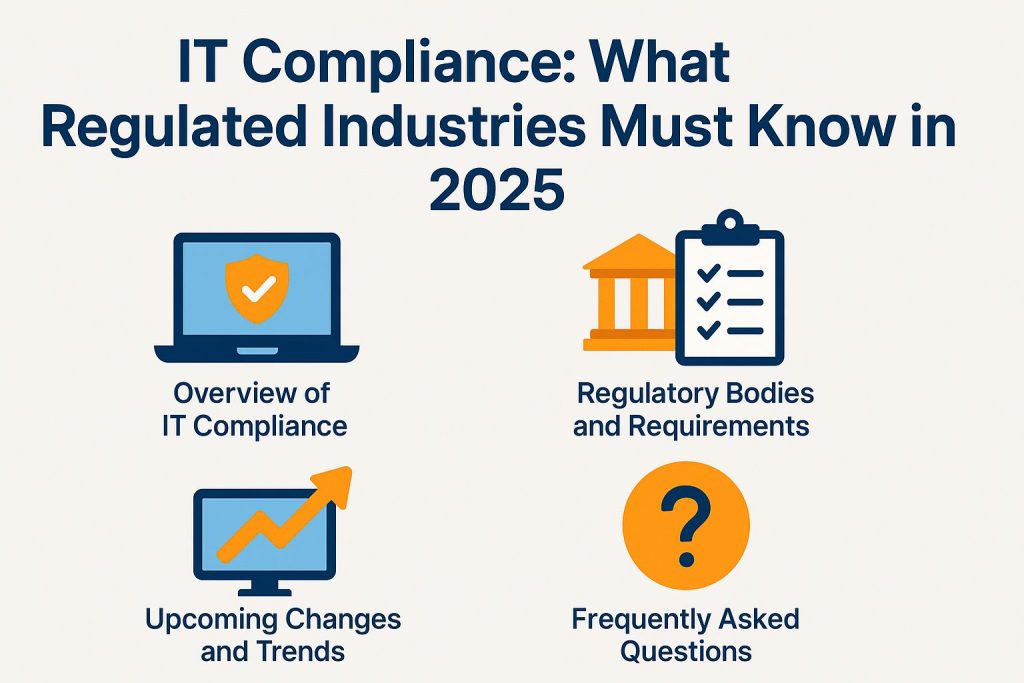Protecting Guest Data: IT Security Compliance for Asheville’s Hospitality Industry

Protecting guest data in Asheville’s hospitality industry is essential for maintaining customer trust and meeting legal requirements. Hotels and restaurants increasingly rely on digital technologies, making them prime targets for cyber threats that can compromise sensitive guest information.
This guide explores cyber threats, compliance regulations, and best practices to enhance IT security compliance for Asheville’s hospitality industry and safeguard guest data.
For related IT compliance insights, visit HIPAA-Compliant IT Solutions for Asheville Dental Practices.
This article looks at types of cyber attacks and data breaches that target hospitality businesses. It outlines IT security compliance requirements and offers steps to protect guest data.
It provides best practices that strengthen security measures and enhance guest trust and loyalty.
Why Protecting Guest Data is Important
In Asheville’s hospitality industry, protecting guest data is vital. Data breaches and cyber threats can compromise personal information and erode customer trust. Hotels can protect sensitive information by prioritizing cybersecurity. This creates security awareness among staff and helps maintain a strong reputation.
The consequences of neglecting this critical aspect can lead to severe consequences. Businesses may face substantial fines and legal repercussions, damaging their reputation for years. Customers are increasingly informed and are inclined to choose accommodations that demonstrate a commitment to data protection.
Strong cybersecurity protocols, like regular audits, employee training, and incident response strategies, can reduce the risk of data breaches. Ultimately, prioritizing guest data protection meets legal obligations and provides a competitive advantage, enhancing guest loyalty and long-term success.
Common Threats to Guest Data in the Hospitality Industry
The hospitality industry faces various threats to guest data. Rapid digitalization and increased reliance on technology expose hotels to cybersecurity vulnerabilities.
Hospitality organizations must implement effective data breach prevention strategies to address these challenges. This includes regular vulnerability assessments and strong network security measures as part of a comprehensive risk management framework.
Types of Cyber Attacks and Data Breaches
In the hospitality industry, various cyber attacks and data breaches threaten guest information security and can lead to severe consequences for customers and businesses.
These incidents can lead to immediate financial losses and long-term reputational damage, resulting in decreased customer loyalty. For example, phishing attacks trick employees into revealing sensitive login credentials. This allows cybercriminals unauthorized access to systems that store guest data. Ransomware attacks lock essential files, disrupt hotel operations, and force organizations to comply with large ransom demands.
To mitigate these risks, it is essential for hospitality establishments to implement layered security measures. This includes:
- Providing employee training on recognizing phishing attempts
- Conducting regular software updates
- Developing robust incident response plans to minimize the impact of any potential breaches
IT Security Compliance Requirements for Asheville’s Hospitality Industry
The Asheville hospitality industry faces strict IT security compliance requirements to protect guest data and adhere to regulations like GDPR and PCI DSS.
Strong compliance measures are essential to reduce risks from data breaches and maintain customer information integrity.
Hospitality businesses must carefully navigate compliance obligations by implementing security policies and training programs. This creates a culture of information security management that meets legal and regulatory demands.
Overview of Relevant Laws and Regulations
This overview covers important laws and regulations, like GDPR and PCI DSS. These rules are crucial for data privacy and security in the hospitality industry.
These regulations set strict rules for handling guest data. They include requirements for encryption, secure payment processing, and incident response.
Organizations must stay updated on regulations. This helps them maintain compliance and avoid legal issues from data breaches.
Robust data governance is very important. Hospitality businesses handle sensitive personal information, like IDs and payment details.
For example, GDPR emphasizes transparency and grants guests the right to access their data, necessitating that businesses maintain clear privacy policies and effective data management systems. Similarly, PCI DSS imposes high security standards for credit card transactions, requiring establishments to implement advanced security measures such as tokenization and ongoing vulnerability assessments.
By following these rules, hospitality operators improve security and build guest trust. This helps maintain a good reputation in a competitive market.
Best Practices for Compliance
Hospitality organizations must implement compliance measures and best practices. This protects guest data and meets regulations.
This includes regular IT audits, clear security policies, and staff training on data handling.
To implement IT security compliance in hospitality, focus on guest data protection. This includes risk assessment, security policies, and incident management.
This process includes evaluating technology, identifying vulnerabilities, and using strong security measures that meet regulations. By seamlessly integrating compliance practices into daily operations, hospitality organizations can strengthen their cybersecurity posture and protect sensitive guest information from potential threats.
Steps for Ensuring Compliance and Protecting Guest Data
Ensuring compliance and protecting guest data within the hospitality industry involves several critical steps that organizations must undertake to establish effective security measures.
First, it is essential for organizations to conduct comprehensive security assessments to identify potential vulnerabilities in both their technology infrastructure and operational processes.
Following this, implementing thorough employee training programs on sensitive information handling, establishing robust data retention policies, and emphasizing security best practices will further enhance efforts to protect guest data and ensure adherence to compliance requirements.
Organizations should develop clear policies regarding data access and sharing to minimize the risk of unauthorized exposure. Regular audits can be instrumental in evaluating current practices and identifying areas that require improvement.
Fostering a culture of accountability around data security through ongoing training sessions and workshops will give the power to staff to prioritize guest privacy.
Creating a culture of accountability for data security through ongoing training will empower staff to prioritize guest privacy. Leveraging technology solutions, such as encryption and access controls, serves as an additional layer of protection, ensuring that sensitive information remains secure from breaches.
It is crucial to stay informed about regulatory changes and industry standards for compliance in a changing landscape.
Frequently Asked Questions
What is IT security compliance? Why is it important for Asheville’s hospitality industry?
IT security compliance means following rules and regulations. These protect sensitive data and information. In the hospitality industry, it is crucial to comply with IT security measures to safeguard guest data and maintain their trust.
What are some common threats to guest data in the hospitality industry?
Common threats to guest data include cyber attacks, data breaches, and malware. These can harm guests and the business.
How can Asheville’s hospitality industry protect guest data from these threats?
Strong IT security measures include firewalls, encryption, and regular software updates. These can prevent attacks and breaches. It is also essential to train employees on safe data handling practices and have a proper disaster recovery plan in place.
Are there any regulations specifically related to protecting guest data in the hospitality industry?
Yes, many regulations require businesses to protect guest data. Examples include the General Data Protection Regulation (GDPR) and the Payment Card Industry Data Security Standard (PCI DSS), that require businesses to protect guest data. It is essential for Asheville’s hospitality industry to comply with these regulations to avoid penalties and maintain guest trust.
Can outsourcing IT security services benefit Asheville’s hospitality industry?
Yes, outsourcing IT security can provide benefits. These include specialized expertise, advanced technologies, cost savings, and 24/7 monitoring. It can also help businesses stay updated with the latest security measures and regulations.
What should guests look for when choosing a hospitality business in terms of IT security compliance?
Guests should look for businesses with a strong record of protecting data. They should have proper security measures in place. This could include having secure online booking systems, using secure payment methods, and displaying data privacy policies. Guests can also inquire about the business’s compliance with relevant regulations.




